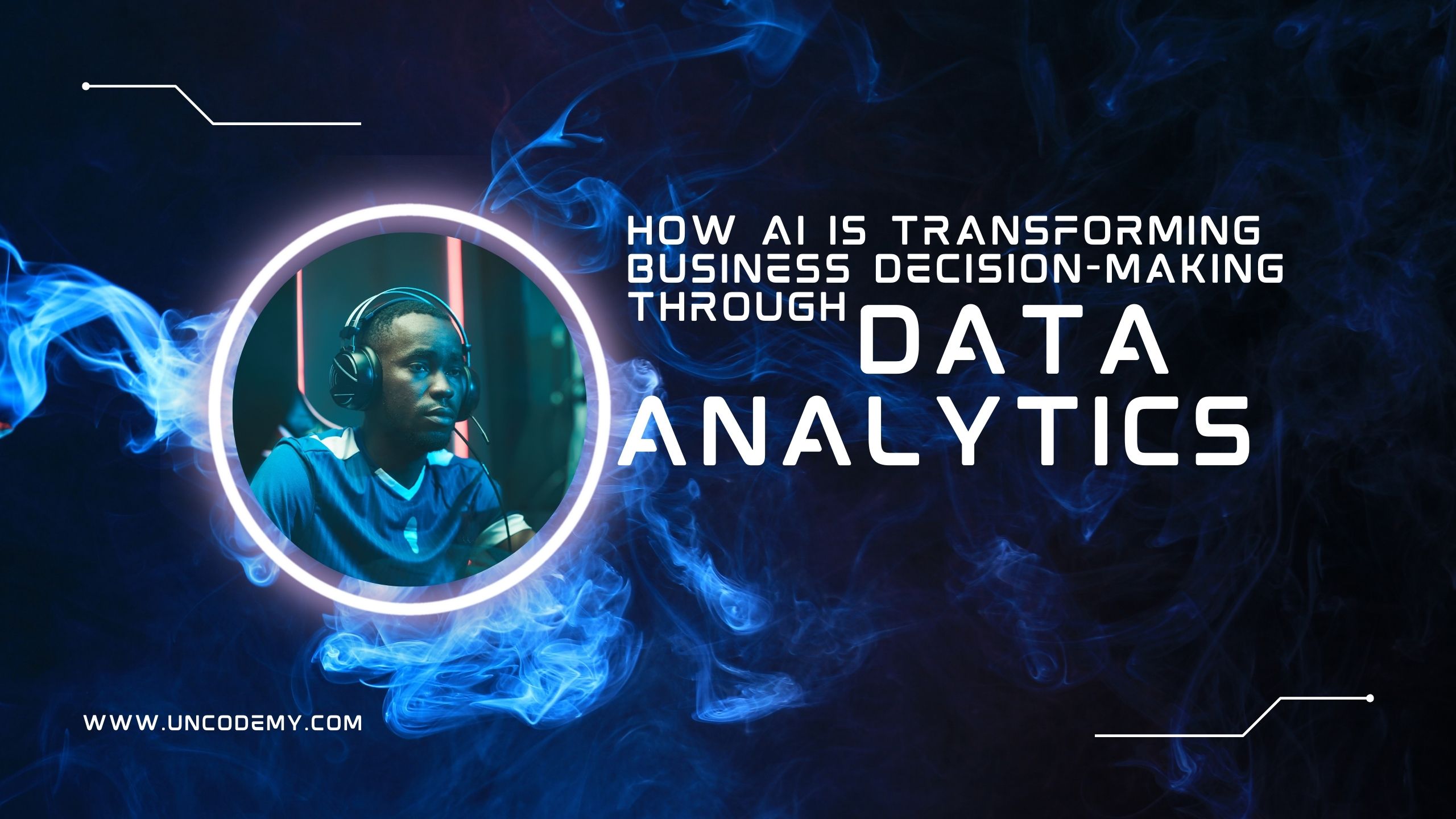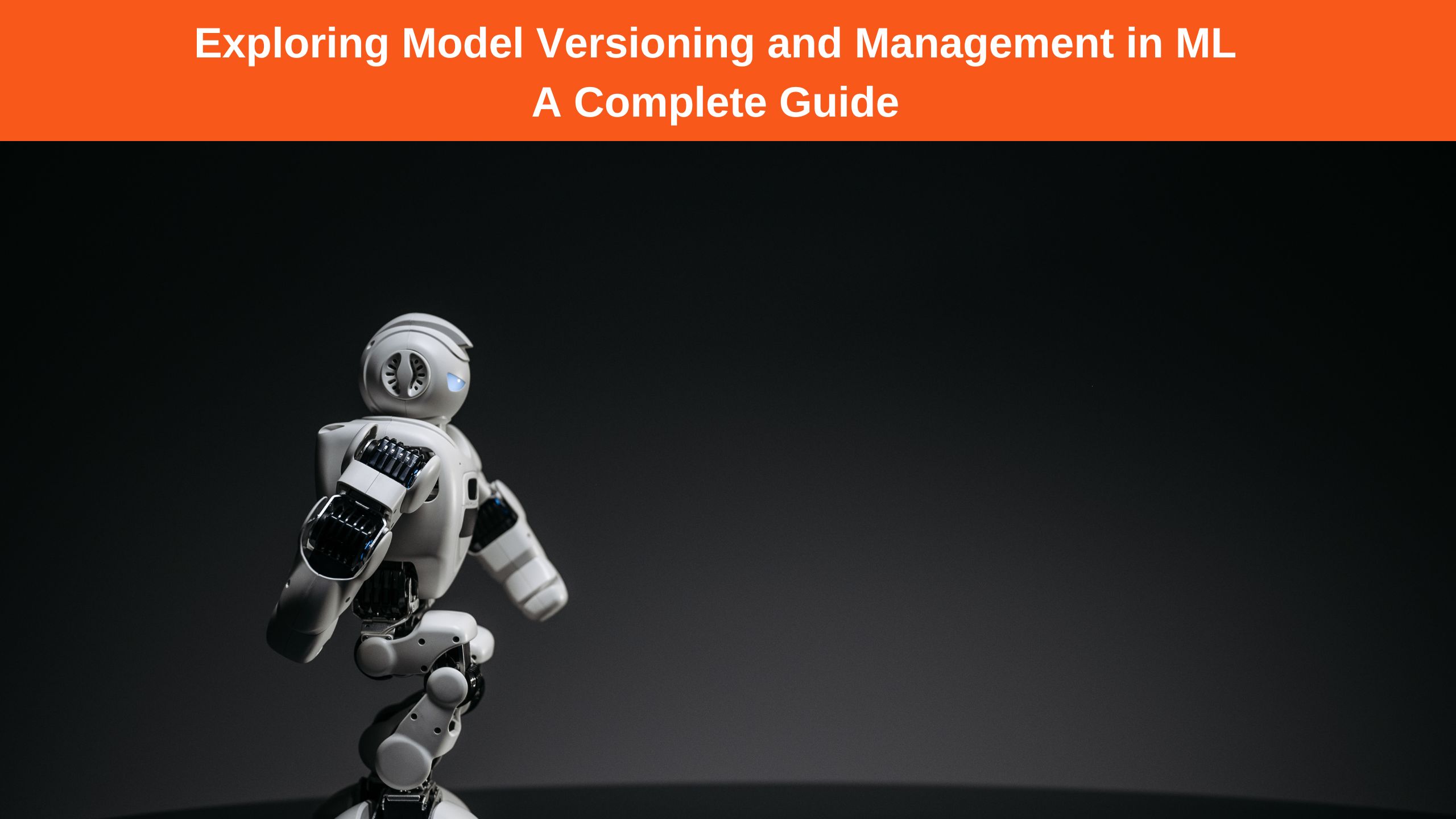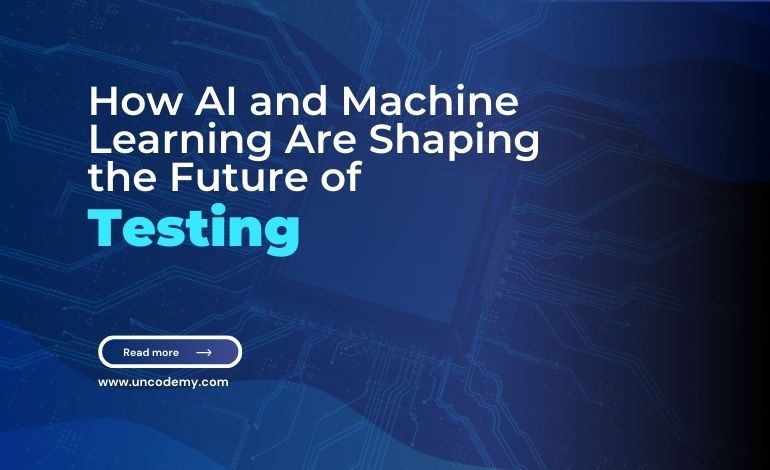How AI is Transforming Business Decision-Making through Data Analytics

In today’s competitive landscape, businesses rely more than ever on data to drive strategic decisions. However, traditional data analytics methods often fall short of delivering real-time insights or making sense of the growing complexity of big data. Enter Artificial Intelligence (AI) – a transformative force reshaping the field of data analytics and, by extension, revolutionizing how businesses make decisions. This blog delves into the ways AI is changing the game for organizations, emphasizing the strengths of modern data analytics tools that leverage AI capabilities.
The Shift from Traditional Analytics to AI-Driven Insights
Traditional data analytics relies heavily on human intervention to gather, clean, and analyze data. While effective in its time, these processes can be slow, error-prone, and inadequate for handling the sheer scale and complexity of modern data streams. AI has emerged as a solution to these limitations, automating tasks and uncovering patterns that would be impossible for humans to detect. Here’s how AI improves the decision-making process:
1. Speed and Automation
AI accelerates data analysis by automating repetitive tasks like data cleaning, integration, and preparation.
Advanced algorithms process vast datasets in real-time, enabling businesses to act on insights quickly.
2. Enhanced Predictive Analytics
AI models excel at forecasting trends, customer behavior, and market shifts by analyzing historical data.
Businesses can proactively adapt to changes, reducing risks and capitalizing on opportunities.
3. Improved Accuracy
Machine learning algorithms reduce human error in data processing and analysis, ensuring more reliable insights.
AI systems continuously learn and adapt, refining their accuracy over time.
Key Applications of AI in Business Decision-Making
AI-powered data analytics is being applied across industries, driving transformative changes in various business functions. Below are some notable areas where AI is making a significant impact:
1. Customer Insights and Personalization
AI enables businesses to understand their customers better than ever before. By analyzing customer data, AI can:
Segment audiences based on behavior, preferences, and demographics.
Deliver personalized recommendations and targeted marketing campaigns.
Predict customer churn and suggest retention strategies.
2. Supply Chain Optimization
AI streamlines supply chain management by:
Predicting demand fluctuations using real-time data.
Optimizing inventory levels to prevent overstocking or stockouts.
Enhancing logistics through route optimization and predictive maintenance.
3. Risk Management
AI improves risk assessment and fraud detection by:
Analyzing transaction patterns to identify anomalies.
Assessing creditworthiness and financial risks with greater precision.
Anticipating cyber threats through real-time monitoring and predictive algorithms.
4. Operational Efficiency
AI-driven analytics tools help businesses optimize internal processes by:
Automating routine administrative tasks, freeing up human resources for strategic work.
Identifying bottlenecks and inefficiencies in workflows.
Providing actionable insights for process improvements.
AI-Powered Data Analytics Tools and Their Key Strengths
A range of AI-driven data analytics tools are available today, each offering unique features to empower businesses. Here are a few tools highlighted in this insightful blog on the role of AI in data analytics:
1. Tableau (AI-Enhanced Analytics)
Strengths: Tableau integrates AI-powered features like natural language processing (NLP), allowing users to query data conversationally. Its visualization capabilities make complex data accessible and actionable.
Impact: Businesses use Tableau to uncover trends and communicate insights effectively, aiding data-driven decisions at all organizational levels.
2. Power BI (Microsoft’s AI Capabilities)
Strengths: With built-in machine learning models and advanced analytics, Power BI helps businesses predict outcomes and automate data analysis.
Impact: Power BI’s real-time dashboards enable companies to monitor performance metrics and make timely adjustments.
3. Google Analytics 360
Strengths: AI in Google Analytics leverages predictive metrics to forecast customer behavior and optimize marketing strategies.
Impact: Marketers gain deep insights into campaign performance and audience engagement, improving ROI.
4. IBM Watson Analytics
Strengths: Watson uses AI to automate data discovery and visualization. It provides advanced predictive and prescriptive analytics to support strategic planning.
Impact: Watson empowers decision-makers with clear, data-driven recommendations.
The Business Benefits of AI in Decision-Making
By integrating AI into their data analytics strategies, businesses unlock numerous benefits that directly impact their bottom line:
1. Data-Driven Culture
AI democratizes data access, making analytics tools user-friendly even for non-technical employees.
Organizations foster a culture where decisions are consistently backed by data.
2. Competitive Advantage
Businesses that adopt AI-powered analytics can identify trends and adapt faster than competitors.
They gain the ability to deliver superior customer experiences and innovate at scale.
3. Cost Savings
Automating data processes reduces the need for manual labor, cutting operational costs.
Predictive maintenance and risk management further prevent financial losses.
4. Scalability
AI systems handle growing data volumes effortlessly, allowing businesses to scale operations without performance bottlenecks.
Challenges in Adopting AI for Data Analytics
While the benefits of AI are undeniable, implementing AI-powered analytics isn’t without challenges. Organizations often face hurdles such as:
1. High Initial Investment
Implementing AI solutions requires significant financial and technological resources.
2. Data Quality Issues
AI models are only as good as the data they process. Ensuring data accuracy and completeness is critical.
3. Skills Gap
Many organizations lack the technical expertise needed to deploy and manage AI systems.
4. Ethical and Privacy Concerns
Businesses must navigate regulatory frameworks and address potential biases in AI algorithms.
To overcome these challenges, organizations should adopt a phased approach, starting small and scaling AI initiatives as they gain expertise.
Conclusion
Artificial Intelligence is undoubtedly transforming business decision-making by revolutionizing the field of data analytics. From enhancing predictive insights to automating complex processes, AI empowers organizations to make faster, smarter, and more accurate decisions. By leveraging tools like Tableau, Power BI, and IBM Watson, businesses can unlock the full potential of AI-driven analytics.
For a deeper dive into how AI is shaping the future of data analytics, check out this insightful blog on The Role of Artificial Intelligence in Data Analytics. It provides a comprehensive overview of the underlying principles and practical applications of AI in this rapidly evolving field.
The integration of AI into data analytics isn’t just an innovation; it’s a necessity for businesses looking to thrive in the digital age. Whether you’re a professional exploring data analytics training program in Delhi or a business leader looking to adopt AI solutions, the time to act is now. The sooner organizations embrace AI, the more equipped they will be to navigate the complexities of a data-driven world.
Note: IndiBlogHub features both user-submitted and editorial content. We do not verify third-party contributions. Read our Disclaimer and Privacy Policyfor details.







